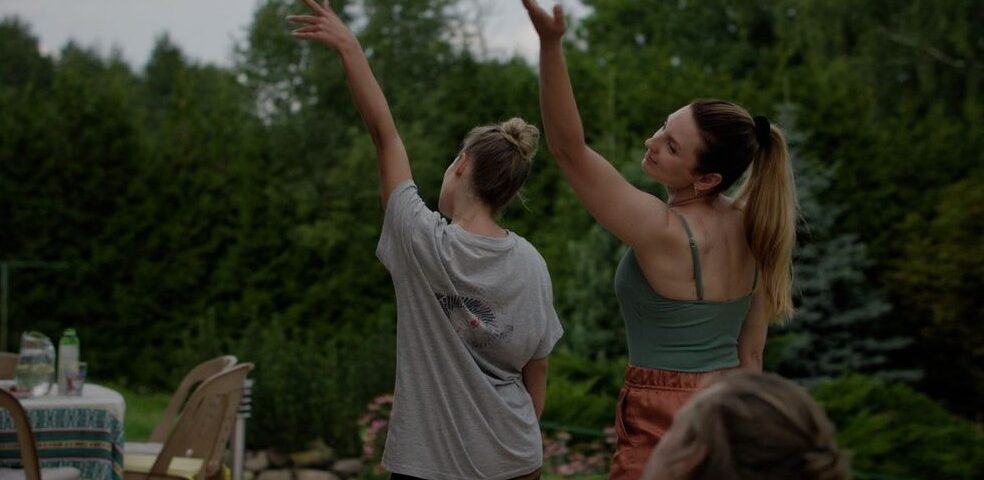


‘Mexico 86’ Review: Bérénice Béjo Toplines a Compelling Political Drama That Never Drums Up Enough Emotion
August 12, 2024


‘Alien: Romulus’ Review: Cailee Spaeny Is Compelling in a Flawed but Pulse-Pounding Homage to the Franchise’s Origins
August 15, 2024Premiering at Locarno, Laurynas Bareisa’s second feature follows two sisters who experience a life-altering event during their summer holiday in the country.
Drowning Dry
Subtle and haunting.
Part of the appeal of Lithuanian director Laurynas Bareisa’s subtly powerful second feature, Drowning Dry (Seses), is that you never know if what you’re watching is taking place in the present, past or future. Time slips back and forth in a way that constantly pulls the viewer out of their comfort zone, although never at the expense of the story. If anything, the fragmented narrative only deepens the sense of tragedy that looms over this sober tale of two families whose summer holiday winds up going terribly wrong.
As the families unpack their bags and settle into peaceful country life, some tension does already hang in the air: Lukas, an MMA fighter whose championship bout opens the film, managed to walk away victorious but also with a severe whipping. Ernesta seems to have had enough of seeing her husband getting knocked around, and she keeps her distance from him during the opening scenes, tending to his wounds but otherwise ignoring him in the bedroom.
At first blush, it looks like Drowning Dry will go on to chronicle the two couples as they experience varying levels of love and hate over their vacation — which sounds like the formula for any number of French movies taking place in a bucolic maison de campagne where desires are ignited and then quashed. But Bariesa pulls the rug out from us about a third of the way through, in a sequence that has Juste’s daughter suddenly falling into the lake and remaining under water.
The tragedy strikes out of nowhere, during a one-take sequence that starts off casually, even playfully, only to transform in the blink of an eye. (Bariesa served as his own cinematographer on the film, and his sober, carefully orchestrated shots recall the work of Michael Haneke.) But what comes after the lake scene is even more jarring. The film suddenly jumps ahead to another place and time, in which we find Ernesta and her son at an indoor swimming pool in Vilnius, where the latter has been taking lessons for quite a while.
Did Ernesta’s niece wind up drowning in the lake? And what’s happened to Lukas, who has seemingly disappeared from the story? Was he killed in yet another vicious MMA fight?
The film’s Lithuanian title, Seses, translates to Sisters, referring to the many ups and downs Ernesta and Juste experience together over the course of the movie. But its English-language title is perhaps more revealing, referring to a psychosomatic condition that hits people who’ve survived a drowning incident, or else have witnessed someone else drowning.
The effect is close to that of suffocation — which is often the tone conveyed by Bareisa as he explores the ripple effects of a tragic event hitting several characters over several days, months and even years, until the film ultimately loops back to what started things off in the first place.
As hopeless at that may sound, Drowning Dry is not entirely a downer, either. Before the truth about what happened is uncovered at the very end, other fragments reveal, in as open-ended a way as possible, how life always goes on for those who’ve managed to survive. They may carry a deep sense of loss inside of them, but also the possibility of starting over, again and again.





